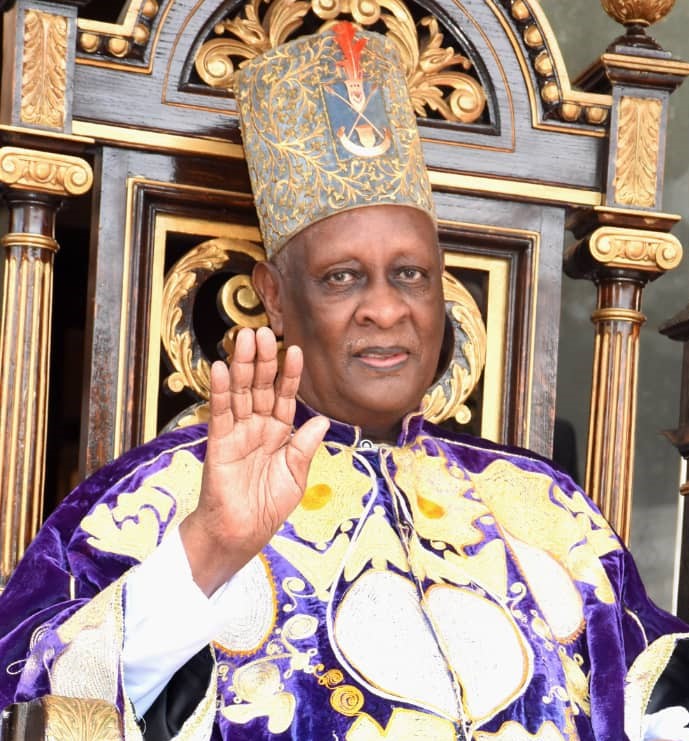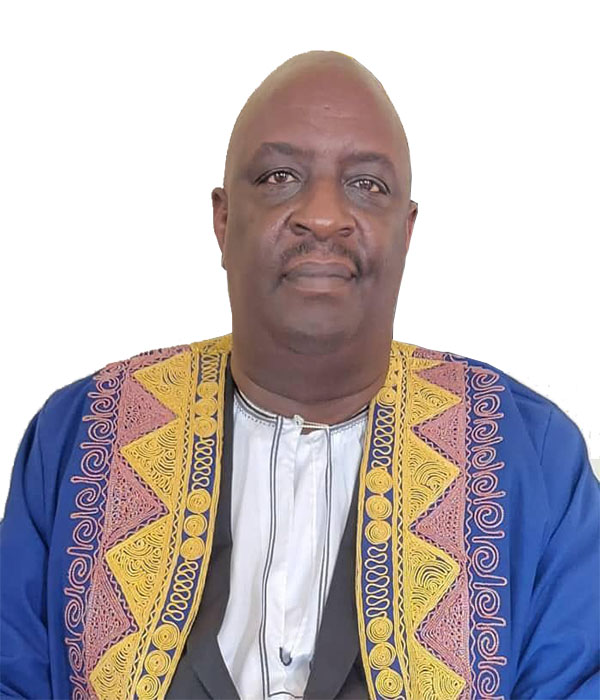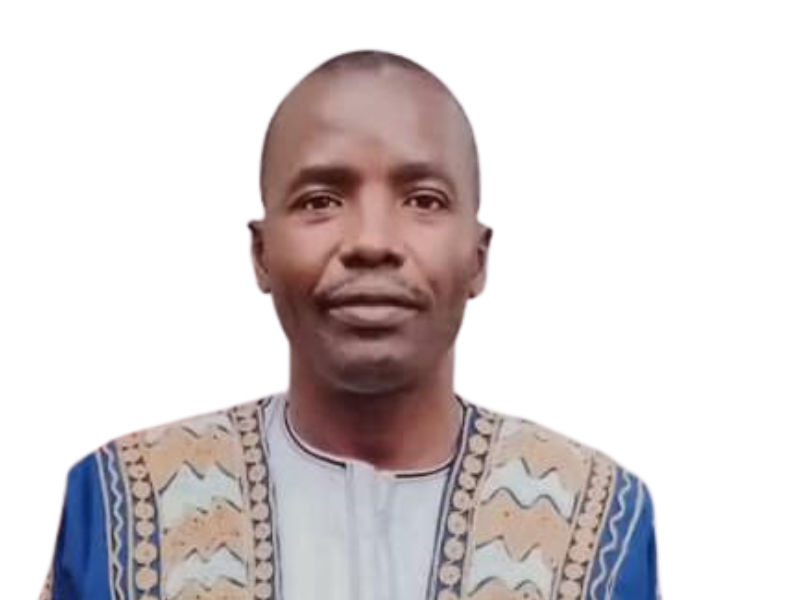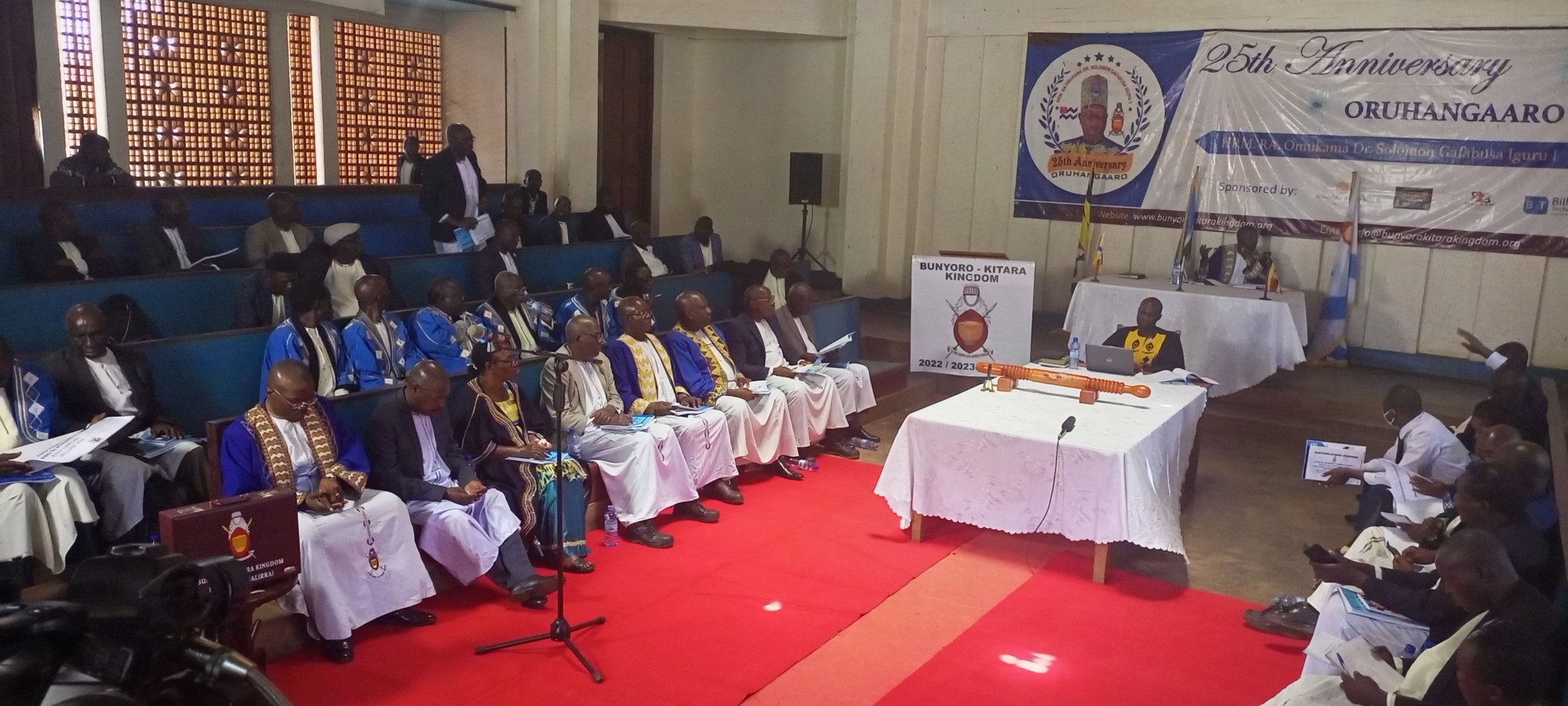- April 2, 2023
- Posted by: Communications
- Category: Study Corner

By: Dr, Evelyn Cindy Magara
I begin by quoting an eminent Munyoro academic. Prof. Anatole Byaruhanga Akiiki, he mentioned in his 1982 book entitled Religions in Bunyoro, where he referred to Bunyoro kitara as a country. Coming from Bunyoro kitara, I ask myself: are we a country now? No! The power dynamics have changed since the colonial era. Is Bunyoro-kitara a nation? Yes. is Kitara a Tribe? The answer is big No. is Bunyoro an ethenic group? No. Bunyoro was an empire, which was reduced to a nation. It is now part of a geographical nation called uganda- which is still building its nationhood. How does Bunyoro maintain its nationhood even in a terrain that is challenged by other forces, like a supper nation(uganda) within a nation(Bunyoro-kitara)?
Nation and Tribe:
The Cambridge Dictionary defines a tribe as a group of people, often of related families, who live together, sharing the same language, culture, and history, especially those who do not live in towns or cities“. According to the Oxford Dictionary, however, a tribe is’ ‘ a social division in a traditional society consisting of families or communities linked by social, economic, religious, or blood ties, with a common culture and dialect, typically having a recognised leader”.
Therefore, Banyoro are more than a tribe, Bunyoro is not a static traditional society, but we are a progressing fluid society that develops by learning from its traditions. On the other hand, ethnicity detonates “ a large group of people who have the same racial, national or cultural origins or the state of belonging to such a group” Bunyoro could pass as an ethenic group, but there are many ethenic groups in Bunyoro, namely the Bagungu, Bakiga, Baruru(alurrs), Lugbaras, Bacope, Bakobya, Bagahya, Bagangaizi, among others.
What brings all these people together is their nationality (being born in Bunyoro). They are all born in the geographic nation/region called Bunyoro. Nationhood can be complicated by its sociological meaning. A nation means a community of people from ethenic groups who share the same culture, history and language-in this case, Runyoro-Rutooro– they could be in different geographic.
Banyoro are more than a tribe. Bunyoro is not a static traditional society, but we are a progressing fluid society that develops by learning from its traditions
The debate could go on, however, i am interested in how we can learn from the concept of being a ‘Munyoro’ as was used by our ancestors, and how it is used today so that it forms a paradigm or an important aspect in our approach to get a great leap in development in Bunyoro and Uganda at large. I am beyond convinced that as much as there are people who identify ethnically as Banyoro, I believe Bunyoro was and can still be used as an ideology to foster national cohesion and development because of its multifaceted meanings.
Being a “Munyoro” means:
Omunyoro/Omunyorokati: Simply means “people”. This is part of the language. When you are greeting or addressing a group of people disregarding their ethnicity, they are referred to as Banyoro( gentlemen if they are men) and Banyorokati( if they are women).
In this context, the sense of nationhood is created. As imagined from the meaning of Banyoro’s referent to a person, a sense of humanity, which is the most desired attribute of any civilization. To be a person or a Munyoro, you had to speak Runyoro. It could be for this reason that throughout the Bunyoro Kitara empire (then) and nation(today), if one speaks the language, Runyoro by default becomes a Munyoro.
Omunyoro means “gentleman” with the feminine being Omunyorokati, To be a lady or a gentleman is a title that is worked for and granted by the King. In Bunyoro-Kitara nation, you are born a lady and a gentleman.
This concept ideologically boosts your ego. If you are a Munyoro, you can’t be a beggar(could be a reason you don’t see street children coming from Bunyoro) neither in Bunyoro urban areas. To a contemporary Munyoro(lady/gentleman), how can you use that inherent prestige to work hard so that you live like a lady and a gentleman you are!.
A Munyoro meant a husband/wife.
It is from this meaning that in a homestead, the man is referred to as the Omunyoro (Mr). In a village setting, a man with an established homestead is always referred to with a prefix-Omunyoro before their name. For example, Omuny. Katahoire, Omuny. Kwebiiha, Omuny. Mwesigwa, Omuny.Birija. Similarly, a respected woman in Bunyoro also has a prefix Omunyorokati (Ms) before their name. For example, Omunyorokati Kagubaza, Omunyorokati Kanyunyuzi, etc.
Leader/ boss. In an office setting, the boss is the Omunyoro of the place. For example, with the assumption that every person is a Munyoro, When a person asks you, “Omunyoro alimu?”[is the Munyoro around]- a reference to “ the big man or women” of the place. With the borrowing from kiswahili, sometimes the word “Omukuru”, “Bwana Kubwa” are synonymous with Omunyoro(the boss, the leader).
It is common to hear on the news or addresses where respectable peoples from other countries are called with a prefix of Omunyoro. A non-Munyoro(please don’t read non-person) asked me “ why do you Banyoro think everybody is a Munyoro ? you have even called Banyorolised heads of state.
You called president Bush Omunyoro Bush!” I had to explain this concept of leadership or being a Munyoro. I amused him more when i used a statement like
It is common to hear on the news or addresses where respectable people from other countries are called with a prefix of Omunyoro
Omunyoro Barack Obama, Omunyoro Yoweri Kaguta, Omunyoro Trump, Omunyorokati Theresa May, Omunyorokati Rebecca Kadaga, etc.
A chief: With regards to the meaning of a leader, Omunyoro is a tittle of a chief. In Bunyoro-kitara Kingdom/nation, special appointees, representatives of the king Abanyoro b’Omukama. In tooro and Bukonjo, the word Omunyoro is still used to refer to the Chief, to the respected person.
A respectable person: This rather incorporates the various meanings as discussed above. Hence, Omunyoro means a respected person. You will find such expressions as “ Omunyoro nawe akora ekyo” [no Munyoro can do such despicable act].
Therefore, the concept of being a Munyoro can be used today as an ideology to reinvent the Banyoro(the people) to leap towards a harmonious and developed nation. For a Munyoro, one should be respectable by not being poor. A Munyoro( a reputable person) should not engage in criminality like killing boda boda riders, commiting murder, kidnaping, stealing, gossip, deceitfulness, greed, disobeying the law and promoting injustice. There is a proverb – the Banyoro have a saying when something is smelly, you spit. The Banyoro should lead not followers. Idealistic as it may sound, a Munyoro is an honest person. If only we can do honest business, undertake honest negotiations with the central government. Be accountable to the Emyenda ya Bunyoro(people who love the nation), Bunyoro(the Nation) will prosper and claim its place as a mother of modern civilization in east and central Africa.
(Dr, Evelyn Cindy Magara is a munyorokati from Kitoba, Hoima. She is a lecture at Makerere University)



